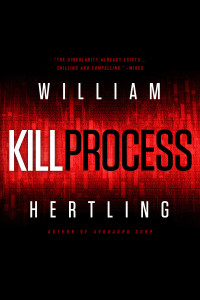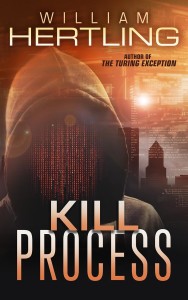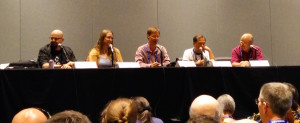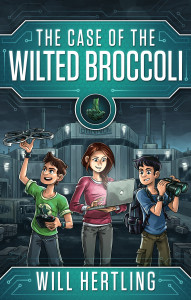My editor is working on Kill Process right now. I’ll receive the marked up manuscript next week and will process all the changes and comments before turning it over to my proofreader. They’ll work on it for about a week, then return it to me, and I’ll process all those corrections. Then the book goes out for formatting to two different people: one for ebook and one for print. When they’re done, everything gets proofed one last time, and if it all looks good, I’ll fulfill Patreon awards to backers.
After that, I’ll upload files to the various vendors, and a week or so after that, the books are live and available for sale. While all that’s happening, there will also be final tweaks to the covers, coordination with the audiobook narrators, and more.
Even as close to the end as this, it’s still hard to predict whenever Kill Process will be available. Do I get a file back right at the start of a long weekend when I can be completely focused on it? Or do I receive it as I’m entering a long stretch with my kids and my day job? It’s hard to say.
If things go well and there are no major issues, I hope to fulfill Patreon rewards by late May, and have the book for sale by mid-June. I’d like the audiobook to be available by July. If I can get anything out earlier, I will.
Here’s a look at the covers for Kill Process. The black and red cover will be the regular edition, available for sale through all the usual outlets. The hooded-hacker cover will be a signed, limited edition available to Patreon backers.
Here’s the working description for Kill Process:
By day, Angie, a twenty-year veteran of the tech industry, is a data analyst at Tomo, the world’s largest social networking company; by night, she exploits her database access to profile domestic abusers and kill the worst of them. She can’t change her own traumatic past, but she can save other women.
But when Tomo introduces a deceptive new product that preys on users’ fears to drive up its own revenue, Angie sees Tomo for what it really is–another evil abuser. Using her coding and hacking expertise, she decides to destroy Tomo by building a new social network that is completely distributed, compartmentalized, and unstoppable. If she succeeds, it will be the end of all centralized power in the Internet.
But how can an anti-social, one-armed programmer with too many dark secrets succeed when the world’s largest tech company is out to crush her and a no-name government black ops agency sets a psychopath to look into her growing digital footprint?










